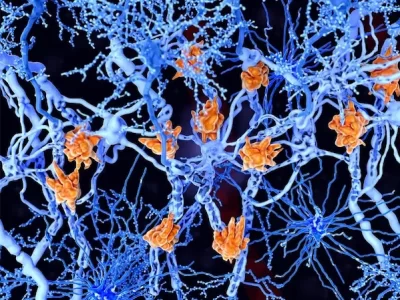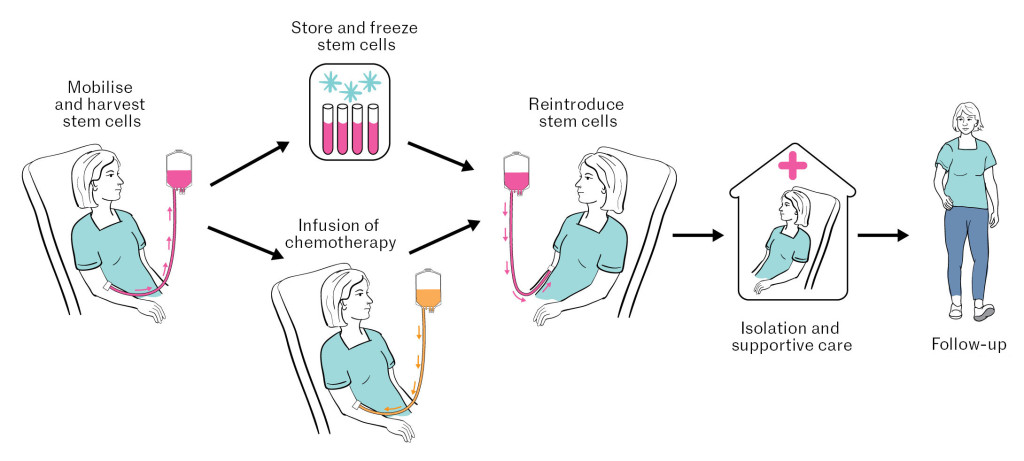Little Known Questions About Regenerative Medicine For Multiple Sclerosis.
9 Easy Facts About Regenerative Medicine For Multiple Sclerosis Explained
Table of ContentsMore About Regenerative Medicine For Multiple SclerosisThe 5-Minute Rule for Regenerative Medicine For Multiple SclerosisSee This Report on Regenerative Medicine For Multiple SclerosisThe 20-Second Trick For Regenerative Medicine For Multiple SclerosisA Biased View of Regenerative Medicine For Multiple SclerosisThe Buzz on Regenerative Medicine For Multiple SclerosisMore About Regenerative Medicine For Multiple Sclerosis
The mesenchymal stem cells hair transplanted during stem cell therapy can split and develop to form brand-new cells that can replace the damaged cells of the anxious tissue. This may bring back neurological features in people with this problem. These benefits of stem cell therapy are further supported by the capability of MSCs to promote recovery.Patients with numerous sclerosis are typically treated with mesenchymal stem cells. These are multipotent stem cells that have the capacity to distinguish and grow to develop a large array of cell types in the body. When hair transplanted, these stem cells can create to create healthy and balanced nerve cells hence sustaining the regeneration of the damaged cells of the nerves.
When transplanted, the stem cells migrate to areas of swelling or damage within the main nerves (CNS). They are normally brought in to the websites of injury where the body immune system is striking the myelin sheath, the safety treatment of nerve fibers. The stem cells function by advertising the repair service and regrowth of damaged myelin, potentially recovering function to influenced nerve cells.
All about Regenerative Medicine For Multiple Sclerosis
Stem Cell Research on MS The National Multiple Sclerosis Culture, in addition to other organizations, is proactively moneying and sustaining research right into mesenchymal stem cell therapy for numerous sclerosis to explore their possible and enhance treatment protocols. The objective is to develop more secure and a lot more efficient methods to utilize stem cells in treating MS.
Here are evaluations from people of the Swiss Medica clinic. The patient traveled from England seeking remedy for his MS signs, a problem he has battled since 2006. Throughout the years, he has fought with tiredness, flexibility concerns, and problems with his bladder and digestive tract, all coming from nerve damages.
His therapy experience was smooth. He likewise valued that his travel, lodgings, and vegan dietary choices were attentively set up. "The clinical personnel were impressive, especially the medical professional. Everything was clearly described, and they were extensive in their checks. I would most definitely recommend this location." The individual traveled from Romania seeking treatment for MS after listening to positive responses regarding stem cell treatment for the condition.
Obtain a complimentary online assessment to find out exactly how stem cells will function for your case, and what are the duration and expense of the treatment. Uccelli, A., Laroni, A., Brundin, L., Clanet, M., Fernandez, O., Nabavi, S. M. Regenerative Medicine for Multiple Sclerosis., Muraro, P. A., Oliveri, R. S., Radue, E. W., Sellner, J., Soelberg Sorensen, P., Sormani, M. P., Wuerfel, J. T., Battaglia, M
Stem cells are cells in the body that can mature into grow cells that serve an offer function. There are two major kinds of stem cells: embryonic stem cells and grown-up stem cells.
are found in some grown-up tissues and body organs consisting of the bone marrow, skin, blood, and mind. Adult stem cells are not as adaptable as embryonic stem cells and are consequently a lot more limited in regards to the sorts of cells they mature into. The unique homes of stem cells supply assurance for brand-new therapies that can slow/halt MS illness activity and repair service tissue damage in the central nerve system.
Fascination About Regenerative Medicine For Multiple Sclerosis

The treatment includes gathering stem cells from a person's very own (autologous) bone address marrow. The individual is then treated with chemotherapy to diminish the body immune system and stem cells are reestablished into the body where they develop into new, healthy and balanced immune cells - Regenerative Medicine for Multiple Sclerosis. Stem cells can be injected into the body in various means

In 2000, the MS Culture of Canada and MS Scientific Research Foundation funded a clinical trial including HSC transplants, led by Drs. Mark Freedman and Harry Atkins from the Ottawa Healthcare Facility Research Study Institute/University of Ottawa. The aHSC therapy readily available in Canada is a treatment that uses high-dose radiation treatment, likewise called conditioning.

Regenerative Medicine For Multiple Sclerosis for Beginners
Neural stem cells (NSC) are discovered in the brain and can grow into various sorts of brain cells consisting of neurons, oligodendrocytes, and astrocytes. NSCs may serve to repair or safeguard the brain and regulate the immune system. Early scientific trials in non-human primates demonstrated that therapy with NSCs benefitted the development of MS-like illness in animal versions.
The arise from these safety and security research studies are positive for future stem cell and regenerative medication therapies a knockout post in MS. Future scientific tests (phase 2 and 3) with larger numbers of participants and controls are necessary to assess the efficacy of this therapy for MS. As shown by the examples above, there is a vast variety of research taking area that will offer added responses concerning using stem cells to deal with MS.
Stem cell treatment is considered risk-free, yet, like any type of clinical procedure, it brings some threats, such as short-term swelling or pain at the shot website. However, major adverse effects are uncommon when performed by certified professionals.
More About Regenerative Medicine For Multiple Sclerosis
Numerous sclerosis (MS) is a persistent condition of the main nerves that find more impacts the mind and spine. It is characterized by the degradation of myelin, a compound that covers nerve fibers, resulting in disruptions in communication between the brain and the rest of the body. Symptoms can vary extensively and consist of muscle weakness, vision problems, inequality, and exhaustion.
Numerous sclerosis is identified by the body immune system incorrectly assaulting the safety sheath (myelin) that covers nerve fibers, triggering interaction issues between the mind et cetera of the body. The disease can cause the degeneration or irreversible damage of nerves. Symptoms differ commonly amongst clients and can include exhaustion, flexibility problems, pain, and cognitive changes.